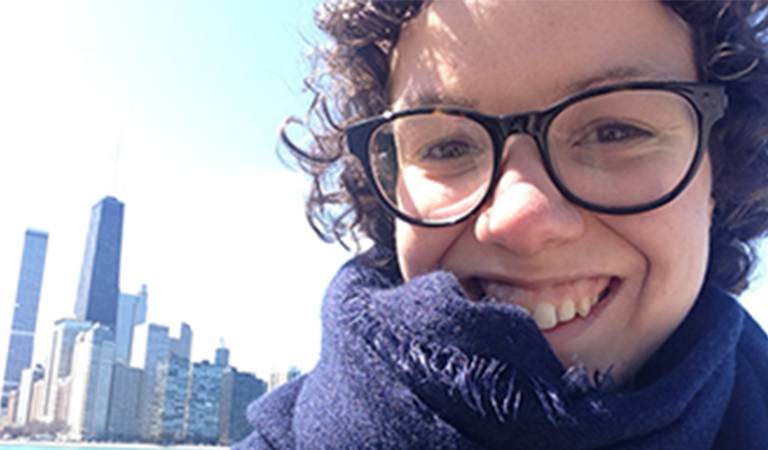Ruth Slatter, PhD
With a focus on historical geography, Rith is writing up her thesis and preparing for a career in higher education.

11 October 2022
“Coming from an Art History and Design History background I first heard about historical geography while studying for my MA in design history. Having met my now supervisor, hearing what his research involved and seeing how it could help me to develop my research further, I decided that the UCL Geography Department would be the most conducive environment for me to carry out my PhD in.
“Over the course of the last three years, my PhD work has taken various different forms. During the first year, I spent a lot of time in the library reading secondary literature related to my research project. During my second year, my time was largely spent in the archives where I have been carrying out my primary research. Now in the third year of study, I am largely at my desk writing up my thesis. In between I have been able to attend seminars, speak at conferences, teach both inside and outside UCL, write articles and organise conference sessions.
In the archives
“I have really enjoyed being able to devote my time to archival research and have the privilege of spending all day, every day in the archives for weeks at a time. I also very much enjoyed participating in the International Conference of History Geographers held in London in July 2015. I organised a fieldtrip for delegates and a conference session that is now going to be published as a special section of Area.
“Alongside another student in my cohort, I collaboratively ran a material culture and geography reading group in the UCL Geography Department during the first two years of our PhDs. This was a really great way to talk about readings that are important to my research with other students who were approaching similar texts from different perspectives.
Research and writing
“Inevitably both my research and writing skills have significantly improved since starting my PhD. However, more fundamentally I have learnt new skills about organising the information I have collected that will be valuable as I hope to continue within academic research. Attending so many different conferences and seminars has taught me a lot about good and bad presentation skills. And I have also gained lots of teaching experience while at UCL.
“Make sure that you’re really enthusiastic about your research project – you’re going to have to live with it for at least three years! Also, make sure you meet your proposed supervisor and know that you could work with them. It’s important to check that they not only carry out research that would make them a good supervisor for the area you’re going to embark on, but that they also operate in a way that will encourage you and help you finish your thesis on time."
 Close
Close

